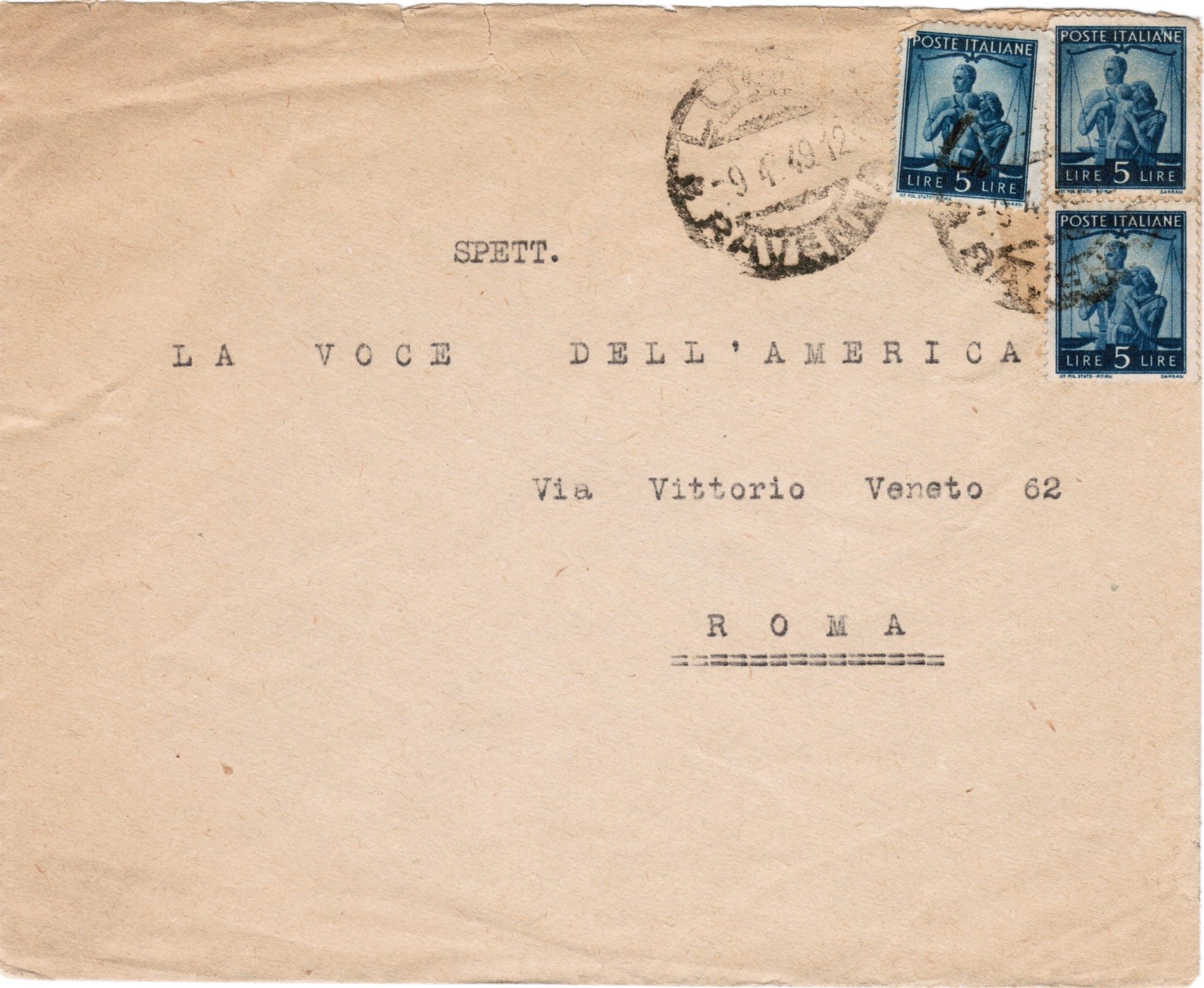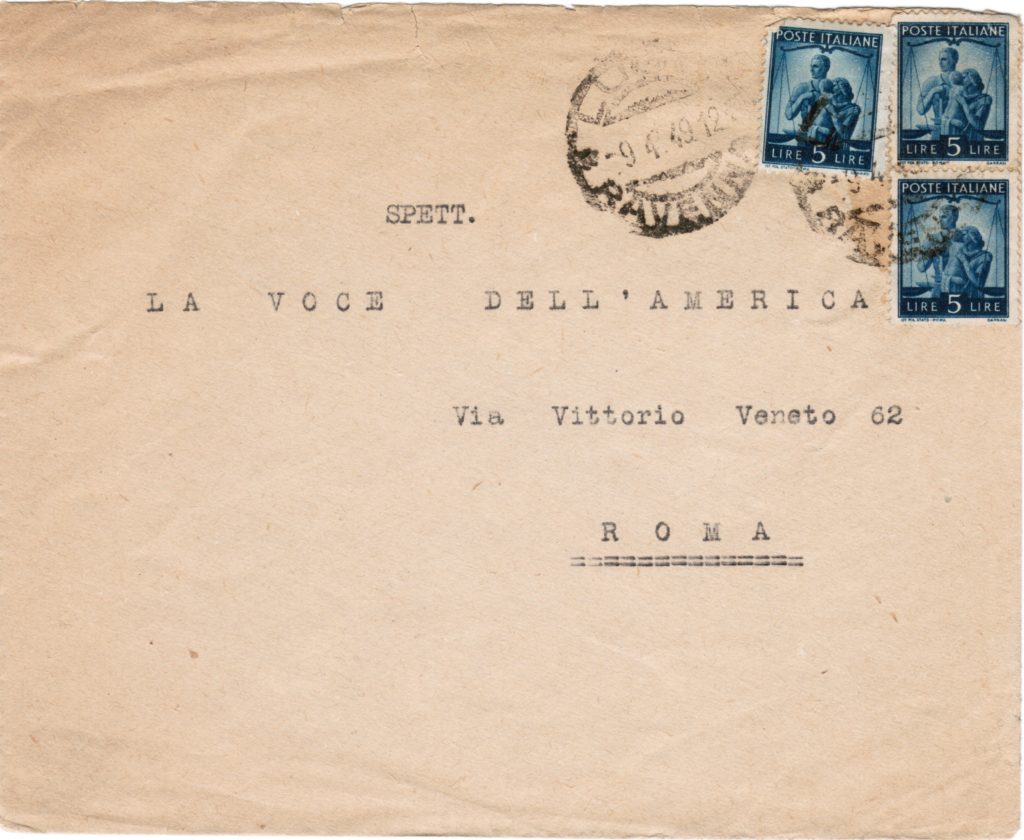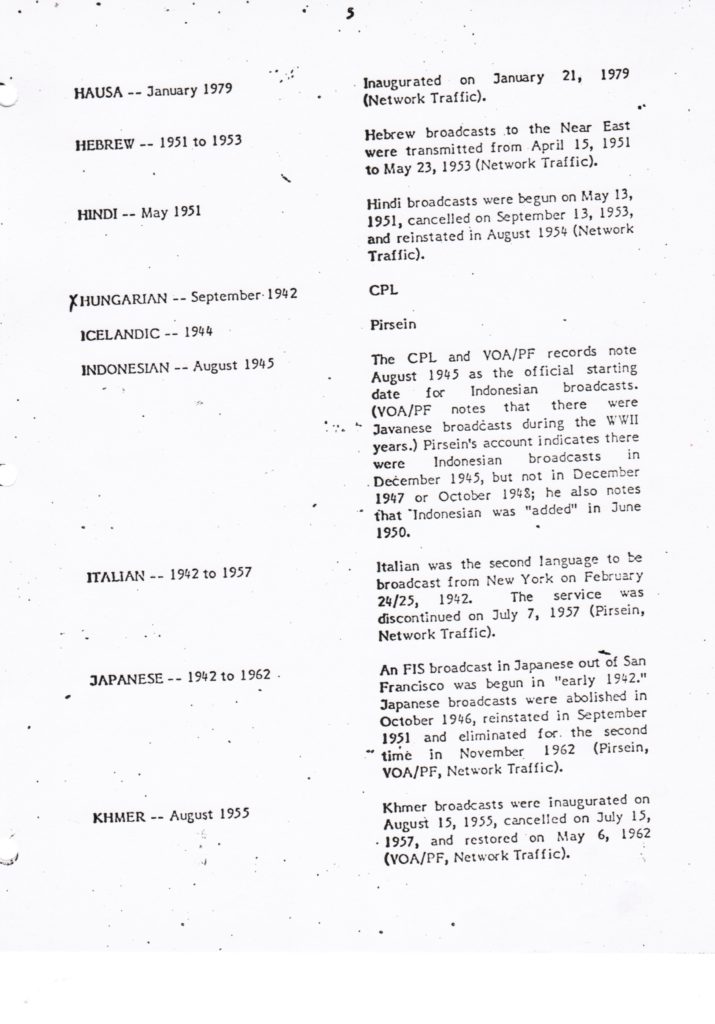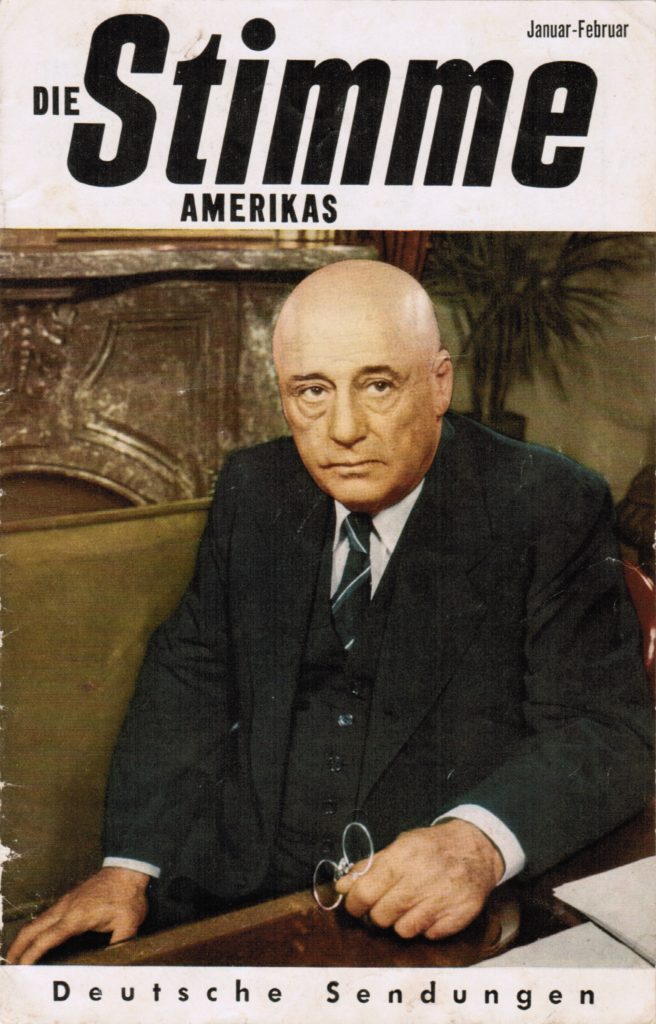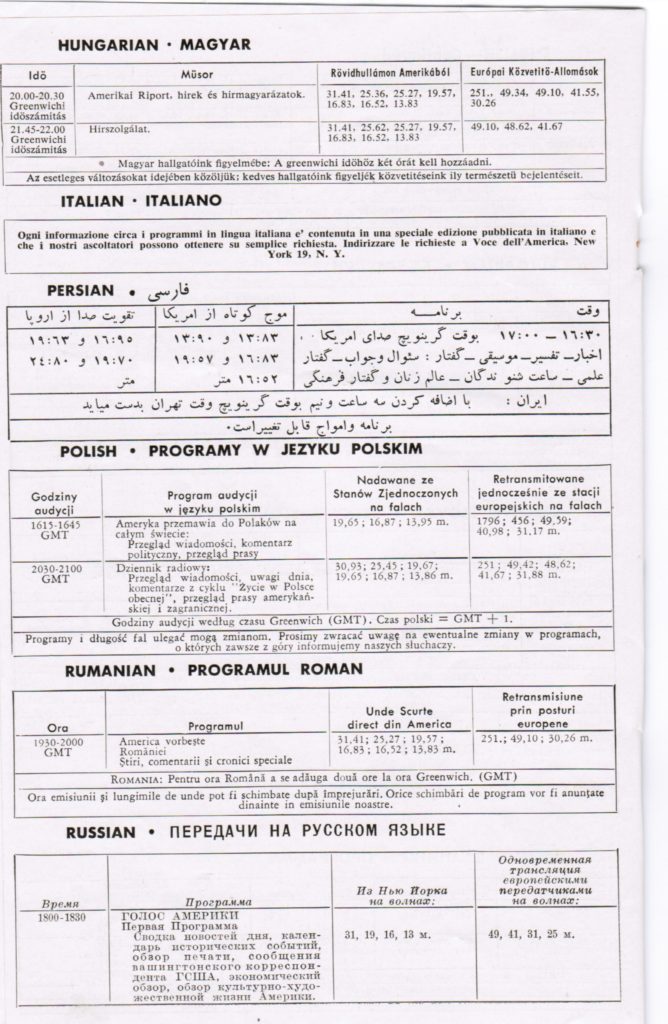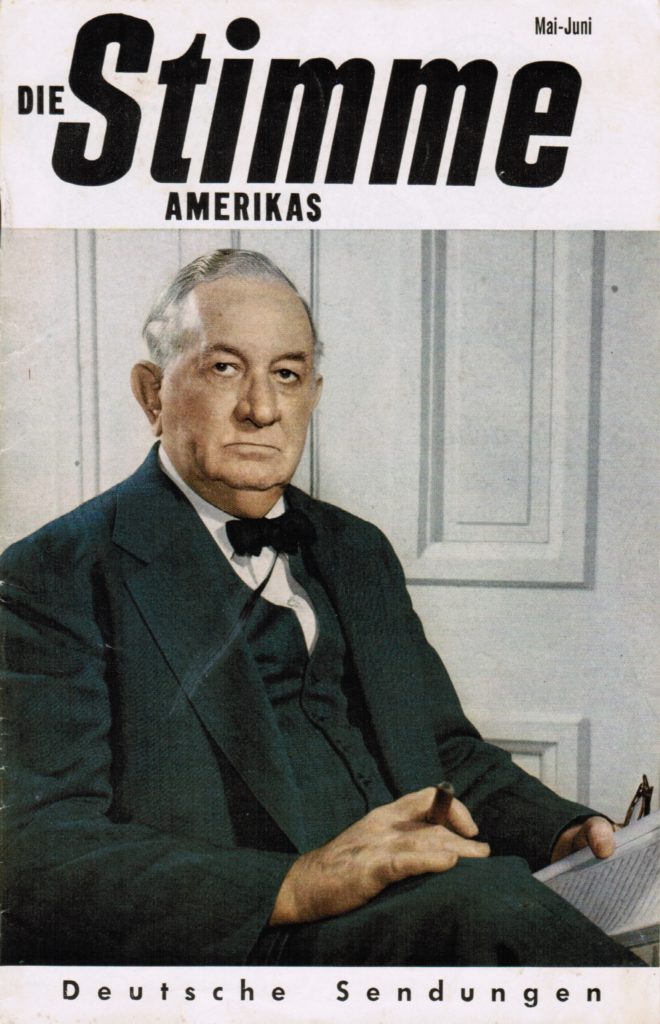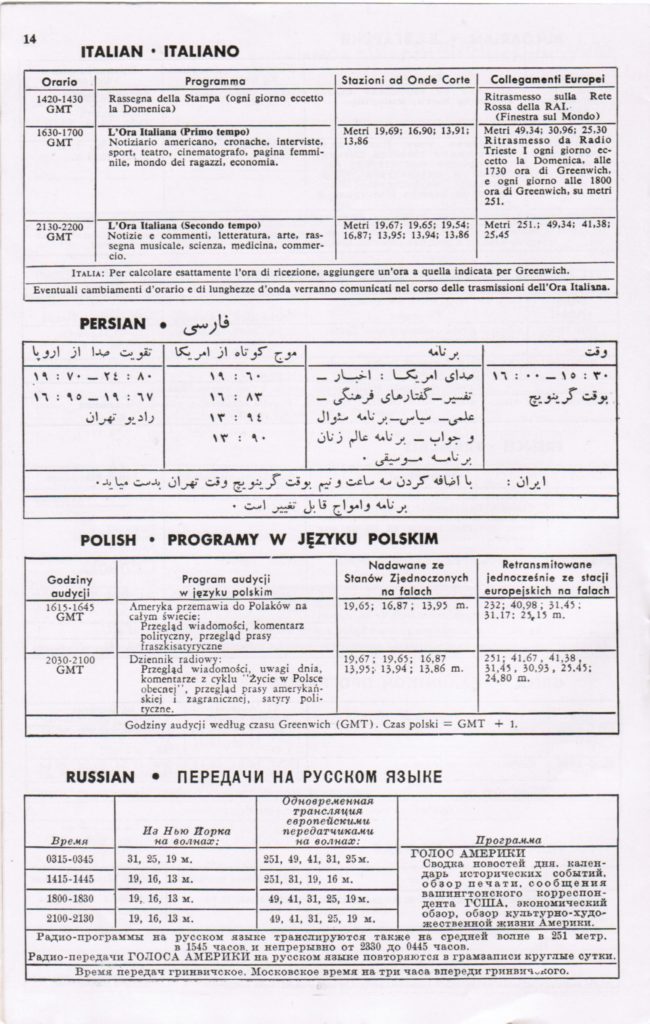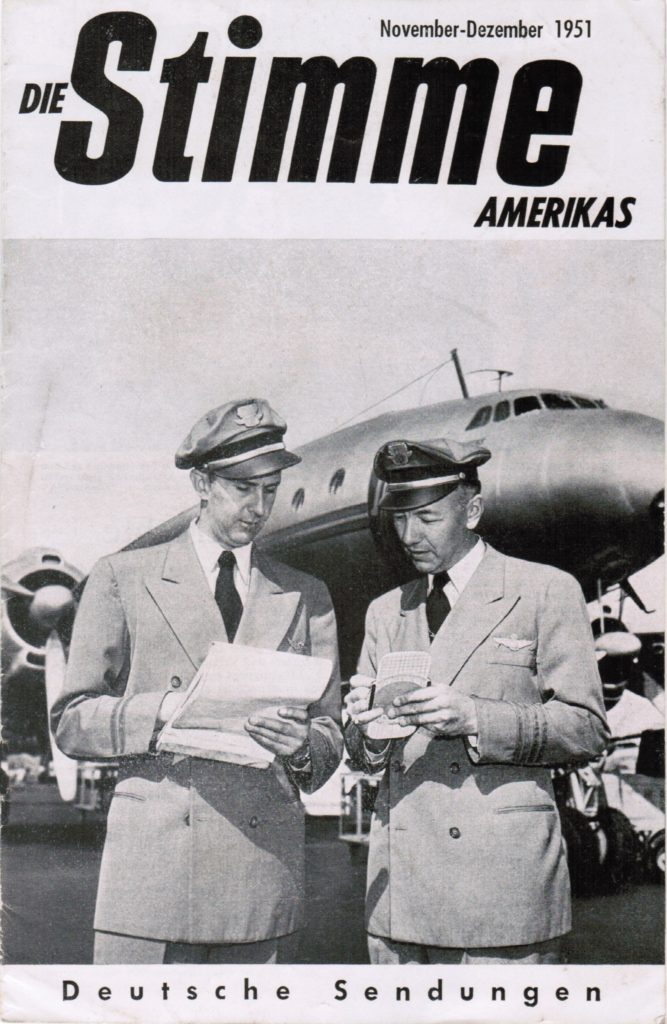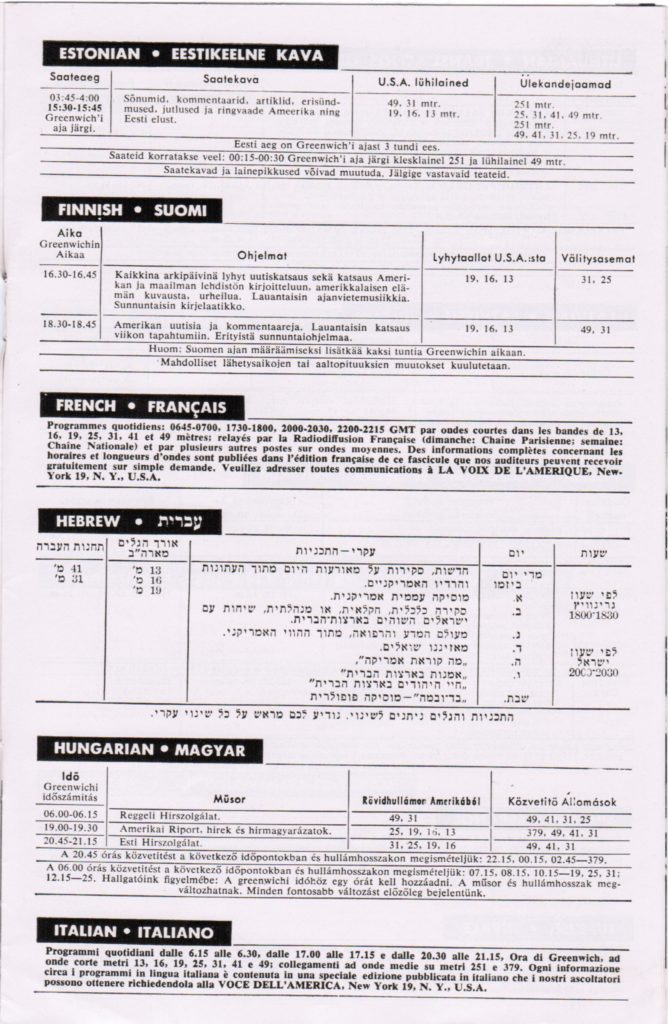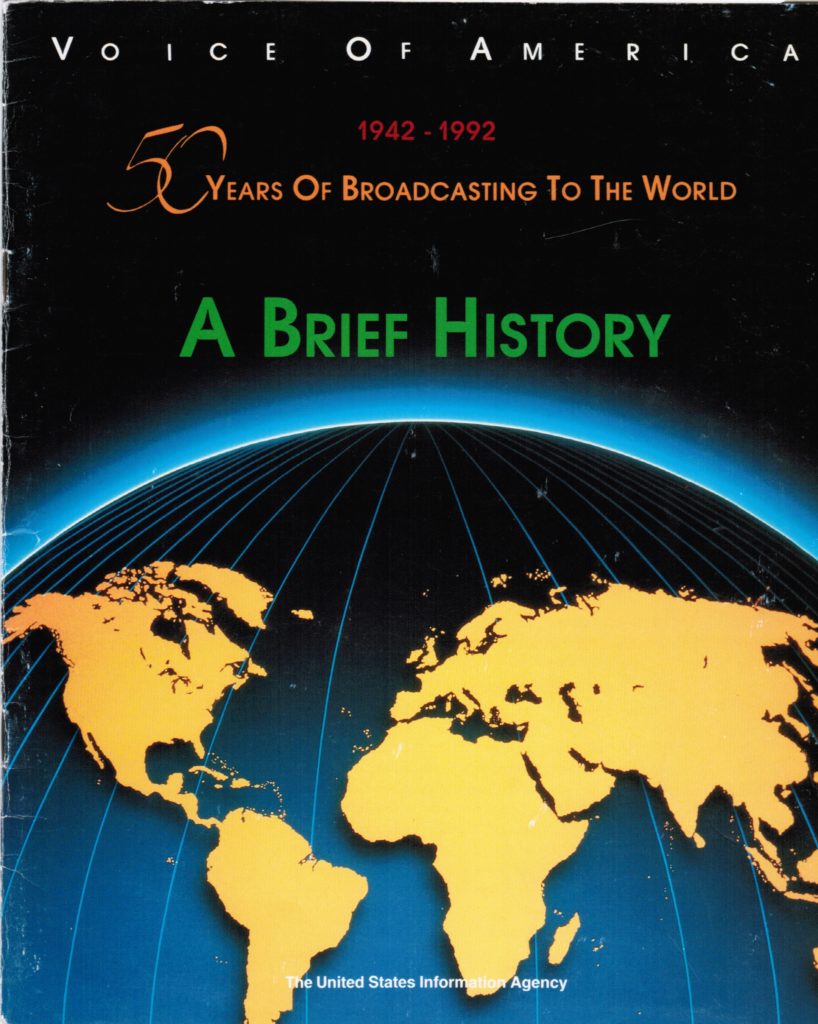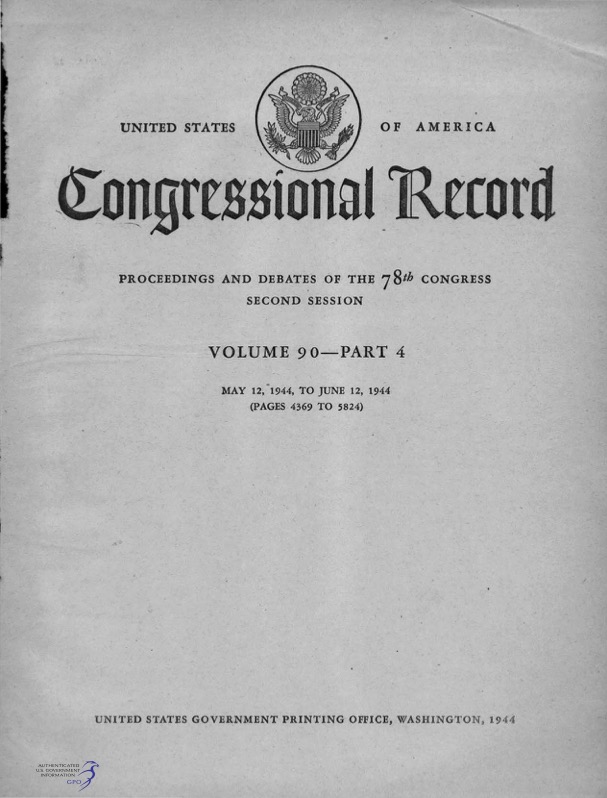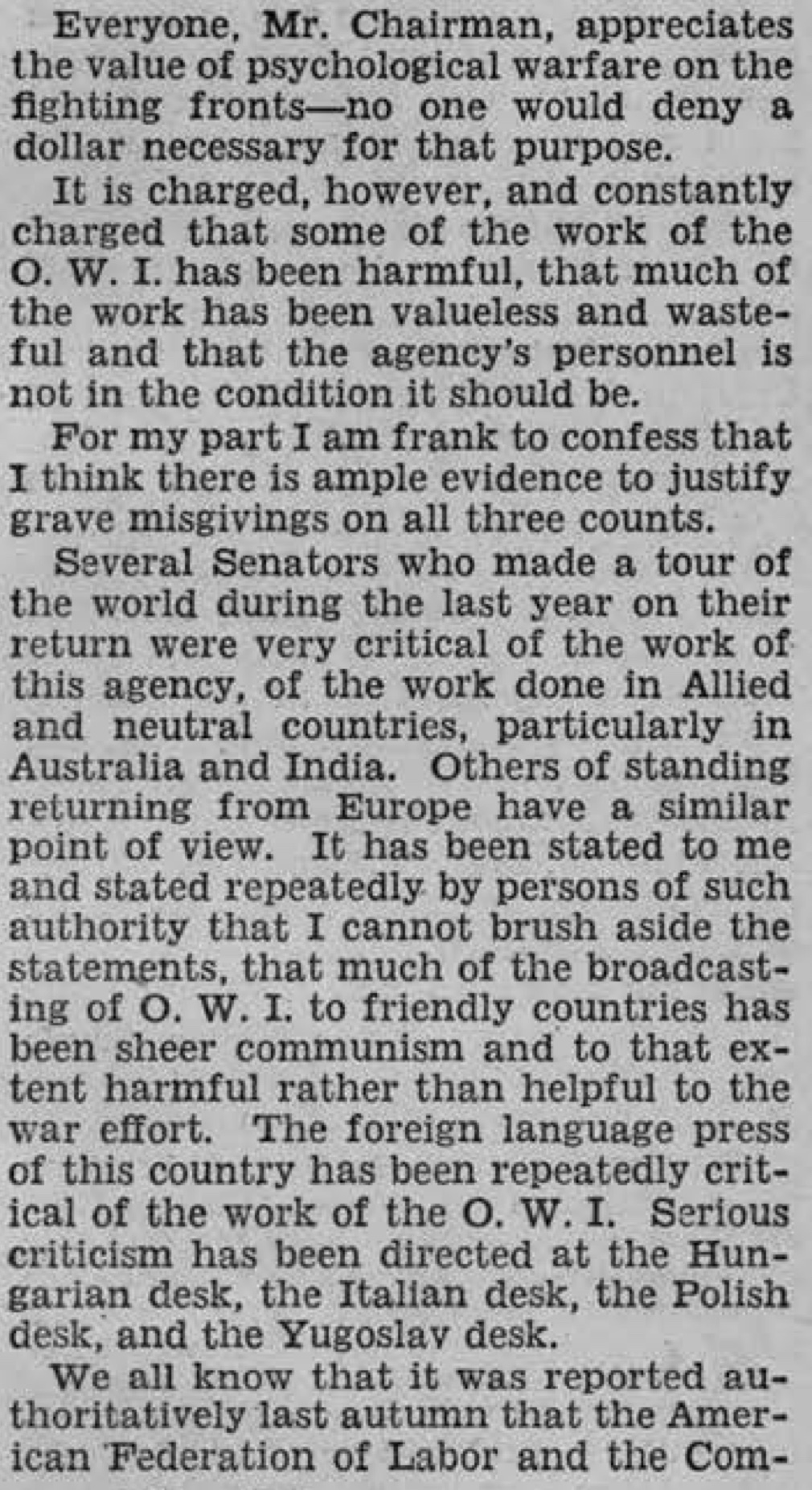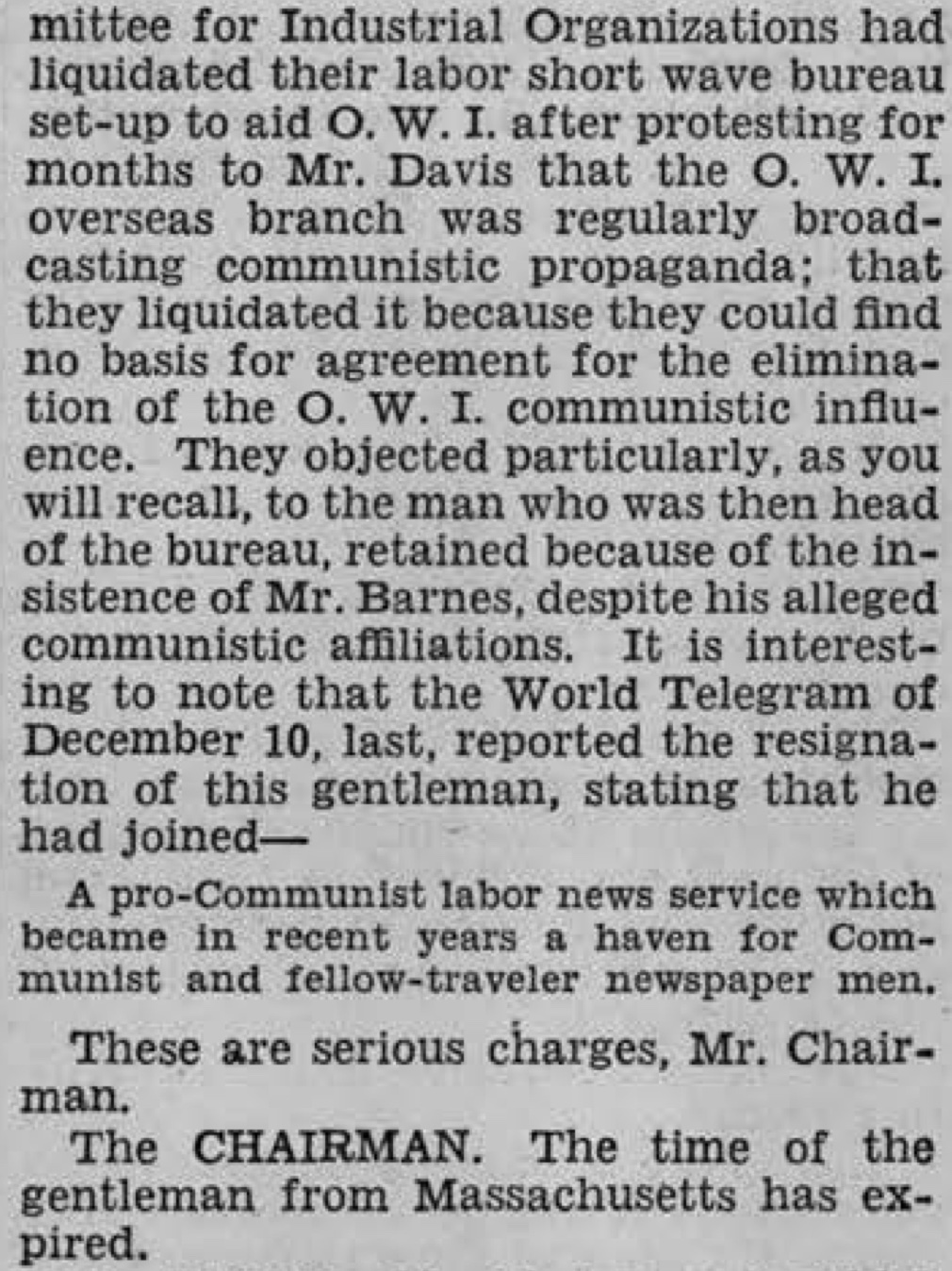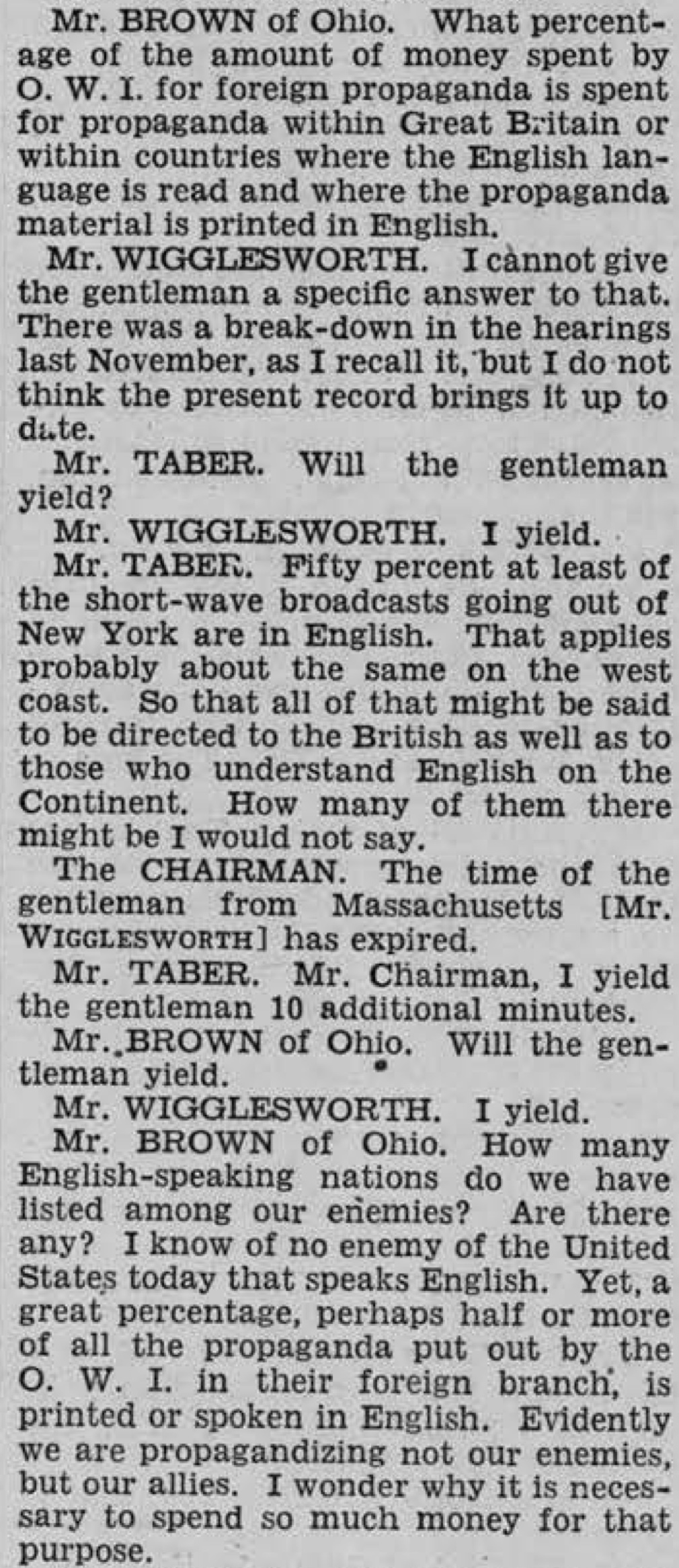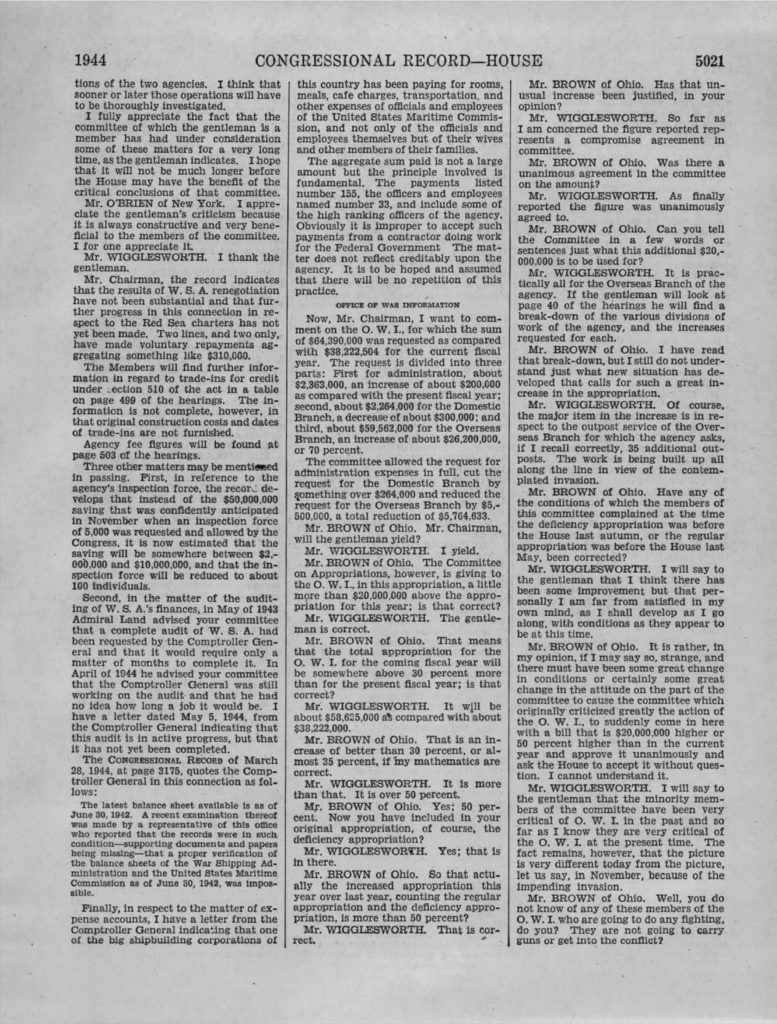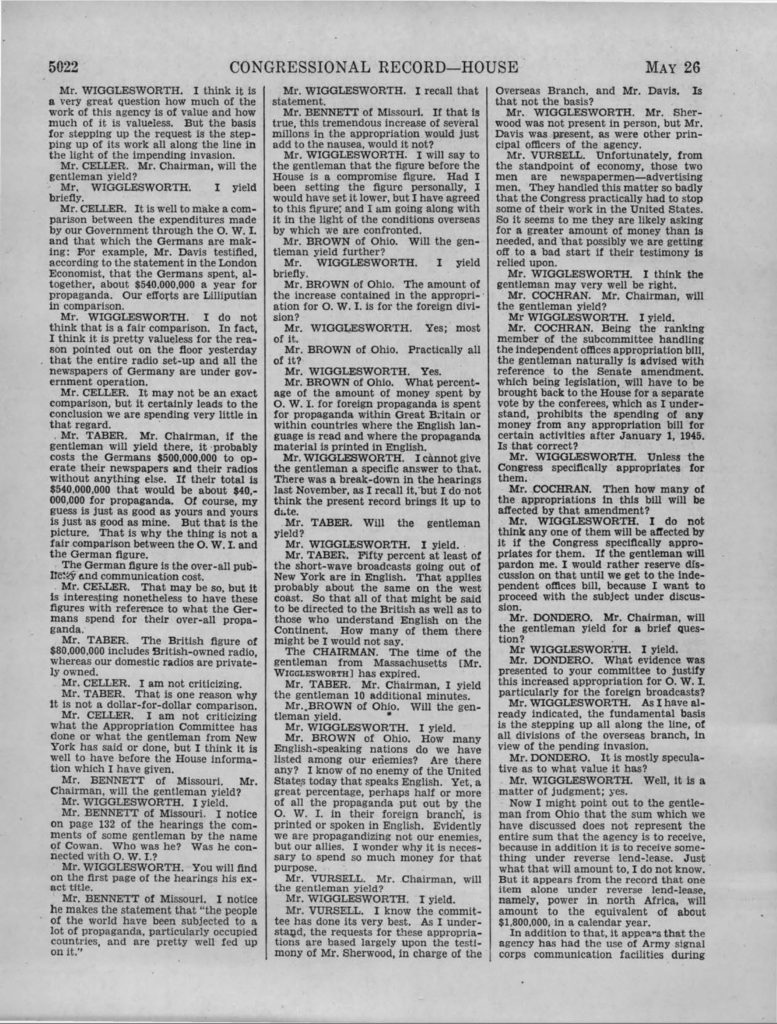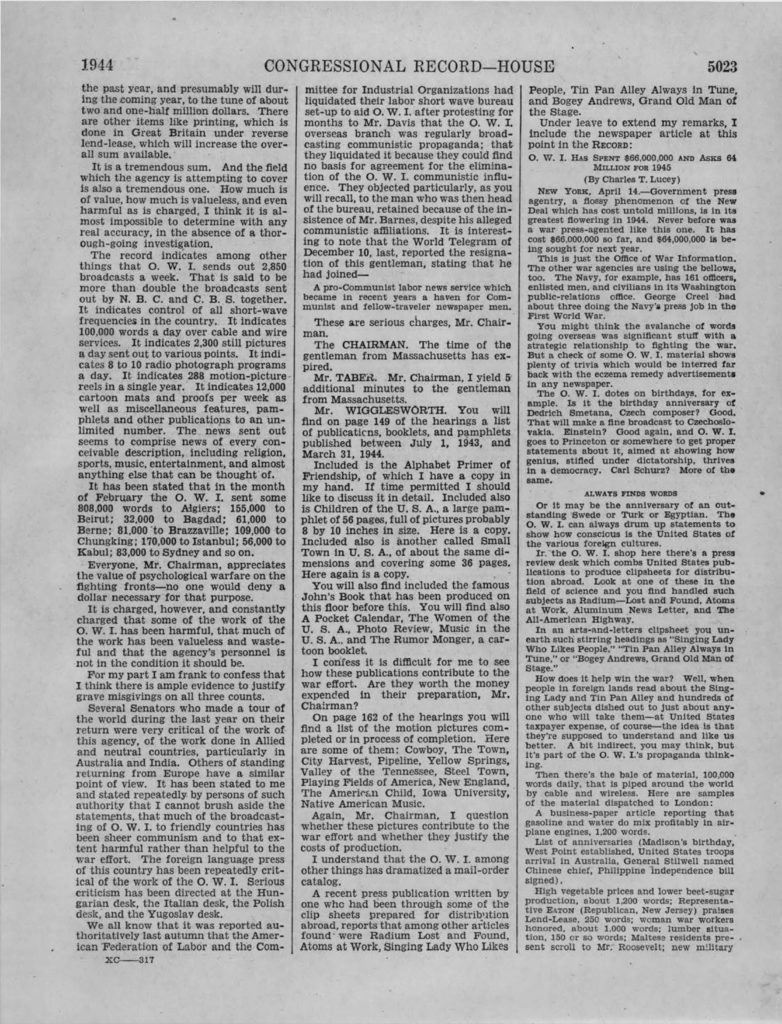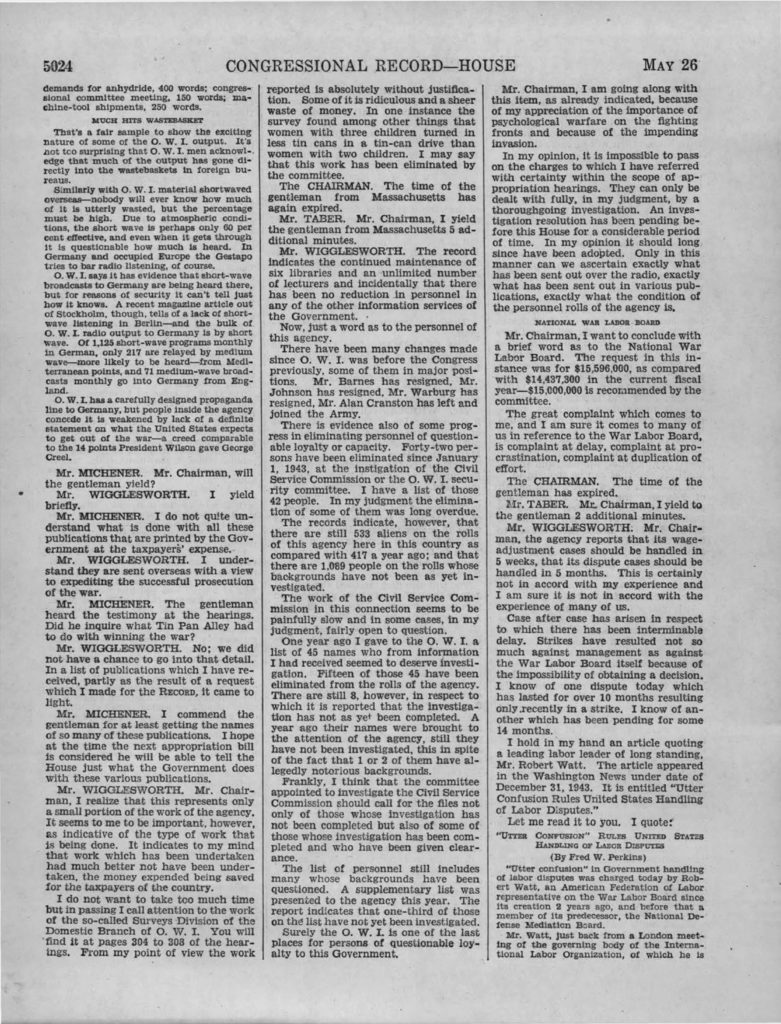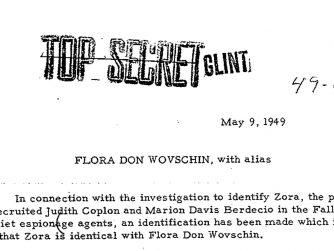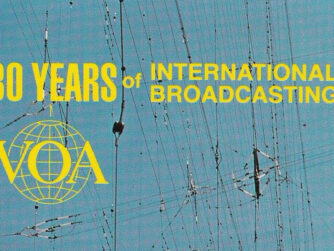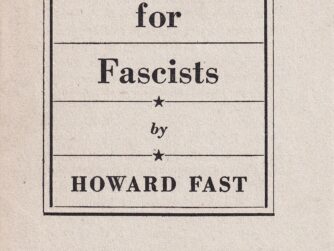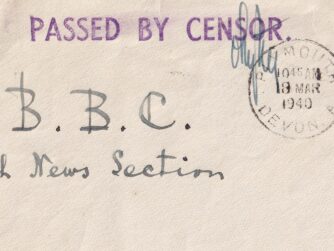In April 1949, someone mailed a letter from Ravenna, Italy to the Voice of America (VOA) office in Rome at Via Vittorio Veneto 62. The envelope was addressed to “LA VOCE DELL ‘ AMERICA” (THE VOICE OF AMERICA). It had no return address. It was stamped by the Italian Post Office in Ravenna on April 9, 1949 and by the Post Office in Rome on April 10, 1949. Italy did not need Mussolini to make its Postal Service and trains function efficiently. The envelope, purchased by me on e-Bay, was empty. We do not know what the letter writer wanted from the Voice of America. He or she may have been requesting a program schedule or responding to one of VOA’s on-air contests. In 1949, the Voice of America was slowly changing from its earlier fascination with the Soviet Union and support for Stalin’s control over East-Central Europe but did not yet start countering Soviet propaganda.
Via Veneto 62 is now a luxury hotel very close to the U.S. Embassy building in Rome. Immediately after World War II, it housed the U.S. Embassy Library and presumably a Voice of America office or was used by VOA as a mailing address.
In 1945, President Truman abolished the U.S. Office of War Information (OWI) where the Voice of America operated during the war and placed VOA within the State Department. That’s where VOA was in 1949. In non-communist countries, VOA services often used local U.S. Embassy addresses to make it easier and less costly for listeners to send letters.
After getting rid of the OWI, the Truman Administration closed down many VOA services which were viewed as no longer necessary after the end of the war or suspected of being dominated by pro-Soviet communist journalists who had controlled most of VOA broadcasts during wartime and in some cases remained as State Department VOA employees after the war.
The VOA Italian Service was suspected of being under heavy communist and socialist influence during the war as were all VOA services under the strongly pro-Soviet OWI and VOA senior management. Communist journalists employed by the first VOA Director John Houseman promoted Soviet propaganda lies, but non-communist VOA journalists, many of them socialists, were also deceived by Soviet propaganda. With the exception of a few broadcasters who were quickly silenced or marginalized, the entire wartime Voice of America glorified Soviet dictator Joseph Stalin not only because at that time the Red Army was fighting Hitler’s Germany as America’s most valuable military ally but also because many of these journalists and their bosses were fooled by Soviet disinformation. They became unwitting agents of influence for a mass murderer and a highly repressive political system which to them appeared very progressive.
Few original Voice of America World War II recordings and scripts have been preserved, but Sandro Gerbi, a nephew of one of the early VOA Italian broadcasters, Giuliano Gerbi (1905-1976), whose on-air name was Mario Verdi, found a VOA script dated December 21, 1943 which was recorded by his uncle.[ref]Sandro Gerbi, “Italy and the Voice of America” (Columbia University: Centro Primo Levi New York, 2010), https://primolevicenter.org/italy-and-the-voice-of-america/.[/ref]
Today Marshal Stalin is 64. It is perhaps the happiest birthday of the Soviet Statesmans’s entire political and military life. The most sumptuous gift has come from his soldiers. The most gratifying reward for him is the consciousness that he has done everything in his power for the good of his Country. His talents had already manifested themselves through his policies in times of peace. Through an intense campaign to raise the spirit of the Russian people, to give this people, enslaved by the Tsars, the awareness of their own national strength (December 21, 1943).
Sandro Gerbi, “Italy and the Voice of America” (Columbia University: Centro Primo Levi New York, 2010), https://primolevicenter.org/italy-and-the-voice-of-america/.
There is some confusion as to whether the Voice of America produced direct broadcasts to Italy between 1945 and 1951, but some Italian-language VOA broadcasts continued to be produced during that period, and the service was not eliminated until 1957. The Voice of America did not manage to be competitive as an on-air radio broadcaster in democratic countries which had free media and had to discontinue its broadcasts to Western Europe, but some Western European VOA services, staffed by a few journalists, continued to provide feeds to local radio networks abroad even into the 1960s and beyond. The VOA Italian Service worked closely with United States Information Agency’s (USIA), established in 1953, and with U.S. Embassy staff in various countries, including Italy. In 1953, the Voice of America was moved from the State Department into the USIA.

According to a document prepared in July 1981 by Vello Ederma, who was then the Acting Chief of the Voice of America European Division (VOA/PE), “The term ‘Voice of America’ was first used in FIS’s initial broadcast in German to Europe on February 24/25, 1942.” [FIS was the U.S. Foreign Information Service established by President Franklin Delano Roosevelt in mid-1941. It was under FIS that the first U.S. government broadcast to Germany was made in February 1942. In June 1942, FIS, including its radio broadcasting operation, was merged into the newly-established U.S. Office of War Information (OWI.)]
The February 24/25 date as the start of the Voice of America radio broadcast in German has not been firmly established. The broadcasts may have started in early February.
The 1981 document put together by Vello Ederma for the incoming Reagan administration management team said that “(The 24/25 debate was resolved later and February 24th became VOA’s official starting date.) Direct broadcasts in German were discontinued on September 1, 1960.”
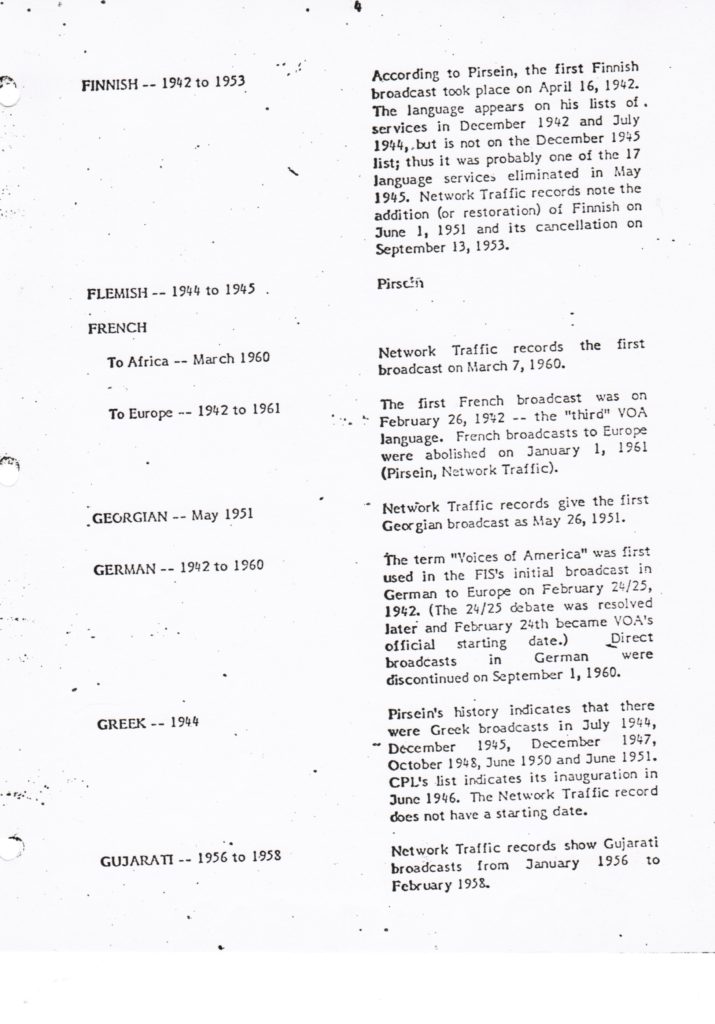
The 1981 document had this information about the Voice of America Italian broadcasts:
“ITALIAN — 1942 to 1957
Italian was the second language to be broadcast from New York on February 24/25, 1942. The service was discontinued on July 7, 1957 (Pirsen, Network Traffic).”[ref]“The European Division VOA/PE” (Washington, DC: Voice of America, July 1981).[/ref]
“The European Division VOA/PE” (Washington, DC: Voice of America, July 1981).
The 1981 briefing document prepared by Vello Ederma notes that “Records of VOA program hours 1942-1950 were unavailable and/or incomplete.” In his memoir Front and Center, first Voice of America director John Houseman wrote that the “first German broadcast was followed within a week by three similar shows: in French, Italian and English.”[ref]John Houseman, Front and Center, 1st Touchstone ed, A Touchstone Book (New York: Simon and Schuster, 1980), p. 39.[/ref] According to Houseman, it was third in size, after the Germans and the French, numbering “some seventy persons.” The first section chief was Carlo A’Prato, whom Houseman described as “a veteran Socialist activist.”[ref]Houseman, Front and Center, p. 59.[/ref] Houseman, who wrote contemptuously about almost all ethnic groups among Voice of America journalists, claimed that “from the start,” the Italians “resisted all attempts to bring any semblance of American journalistic efficiency into their broadcasts.”[ref]Houseman, Front and Center, p. 60.[/ref] Himself an immigrant of British and French background but fully assimilated and successful, Houseman looked down on most foreign-born broadcasters, especially those who did not share his own leftist and pro-Soviet political views. He referred to them as “hyphenated Americans.” According to Houseman, “certain governments in exile and organized groups of hyphenated Americans used the Communist innuendo as their principle weapon in their repeated attempts to influence our foreign propaganda.”[ref]Houseman, Front and Center, p. 69.[/ref]
The Voice of America pamphlet, Voice of America 1942 -1992 – 50 Years of Broadcasting to the World – A Brief History says that the VOA Italian Service existed from 1942 to 1945; 1951 to 1957. However, VOA program schedules published in 1950 in German had entries for VOA Italian programs.
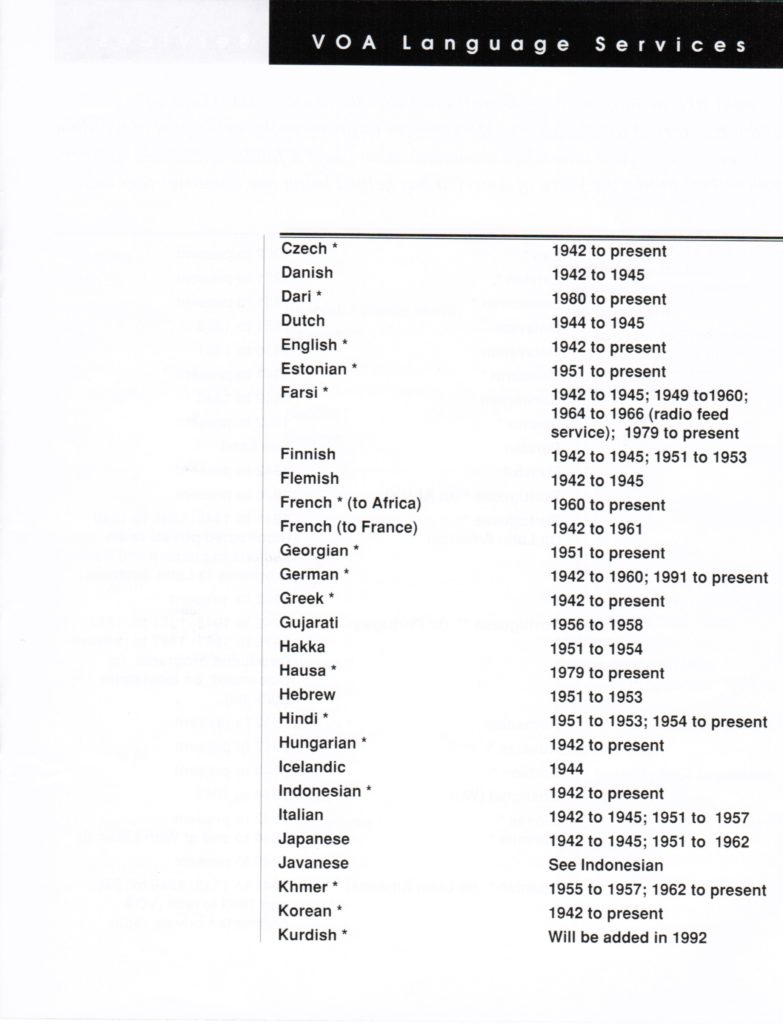
Fully erased from the official history has been any mention of Soviet influence over early Voice of America broadcasts and the hiring of many American and foreign Communists by the first VOA Director John Houseman to fill various VOA news reporting and broadcasting positions. One of his proteges was the first VOA chief news editor and writer Howard Fast who in 1953 received the Stalin Peace Prize.
John Houseman was quietly forced to resign in mid-1943 by the Roosevelt Administration, but many of the Soviet sympathizers and Communists hired by him remained at VOA for several more years.
Members of the U.S. Congress became aware that Communists were employed at VOA’s German, Hungarian, Italian, Polish, Yugoslav and other foreign-language services. Future Communist Party activist Howard Fast was in charge of VOA English news until he was also forced to resign in early 1944.
In May 1944, Congressman Richard B. Wigglesworth (R-MA), future U.S. Ambassador to Canada, listed the Italian desk as being being under communist and Soviet influence.
Everyone, Mr. Chairman, appreciates the value of psychological warfare on fighting fronts—no one would deny a dollar necessary for that purpose.
It is charged, however and constantly charged that some of the work of the O.W.I. has been harmful, that much of the work has been valueless and wasteful and that the agency’s personnel is not in the condition it should be.
For my part I am frank to confess that I think there is ample evidence to justify grave misgivings on all three counts.
Several Senators who made a tour of the world during the last year on their return were very critical of the work of this agency, of the work done in Allied and neutral countries, particularly in Australia and India. Others of standing returning from Europe have a similar point of view. It has been stated to me and stated repeatedly by persons of such authority that I cannot brush aside the statements, that much of the broadcasting of O. W. I. to friendly countries has been sheer communism and to that extent harmful rather than helpful to the war effort. The foreign language press of this country has been repeatedly critical of the work of the O. W. I. Serious criticism has been directed at the Hungarian desk, the Italian desk, the Polish desk, and the Yugoslav desk.
We all know that it was reported authoritatively last autumn that the American Federation of Labor and the Committee for lndustrial Organizations had liquidated their labor short wave bureau set up to aid O.W.I. after protesting for months to Mr. Davis that the O.W.I. overseas branch was regularly broadcasting communistic propaganda; that they liquidated it because they could find no basis for agreement for the elimination of the O. W. I. communistic influence. They objected particularly, as you will recall, to the man who was then head of the bureau, retained because of the insistence of Mr. Barnes, despite his alleged communistic affiliations. It is interesting to note that the World Telegram of December 10, last, reported the resignation of this gentleman, stating that he had joined—
a pro-Communist labor news service which became in recent years a haven for Com- munist and fellow-traveler newspaper men.
These are serious charges, Mr. Chairman.
The CHAIRMAN. The time of the gentleman from Massachusetts has expired.
Mr. BROWN of Ohio. What percentage of the amount of money spent by O. W. I. for foreign propaganda is spent for propaganda within Great Britain or within countries where the English language is read and where the propaganda material is printed in English.
Mr. WIGGLESWORTH. I cannot give the gentleman a specific answer to that. There was a break-down in the hearings last November, as I recall it, but I do not think the present record brings it up to date.
Mr. TABER. Will the gentleman yield?
Mr. WIGGLESWORTH. I yield.
Mr. TABER. Fifty percent at least of the short-wave broadcasts going out of New York are in English. That applies probably about the same on the west coast. So that all of that might be said to be directed to the British as well as to those who understand English on the Continent. How many of them there might be I would not say.
The CHAIRMAN. The time of the gentleman from Massachusetts [Mr. Wigglesworth] has expired.
Mr. TABER. Mr. Chairman, I yield the gentleman 10 additional minutes.
Mr. BROWN of Ohio. Will the gentleman yield?
Mr. WIGGLESWORTH. I yield.
Mr. BROWN of Ohio. How many English-speaking nations do we have listed among our enemies? Are there any? I know of no enemy of the United States today that speaks English. Yet, a great percentage, perhaps half or more of all the propaganda put out by the O. W. I. in their foreign branch, is printed or spoken in English. Evidently we are propagandizing not our enemies, but our allies. I wonder why it is necessary to spend so much money for that purpose.
Perhaps the biggest programming scandal at the wartime Voice of America, revealed by the New York Times political reporter in Washington Arthur Krock, was caused by an English-language broadcast about Italian King Victor Emmanuel III. A VOA commentary referred to him as “moronic little king,” which could have undermined General Dwight Eisenhower’s efforts to get Italy out of the war on the side of Nazi Germany. Communist and other radically leftist Voice of America editors and broadcasters had already made Eisenhower angry earlier when they criticized his strategy of dealing with the Vichy French in North Africa. Eisenhower viewed such VOA broadcasts as endangering the lives of American soldiers. Even John Houseman noted in his memoir the General’s bitter criticism of VOA as reported in a front-page article in Chicago Tribune. Houseman described the Chicago newspaper as “anti-Administration,” but he also noted that the “liberal New York Post, also reported that VOA “propagandists were giving him as much of a headache as the Germans.”[ref]Houseman, Front and Center. p. 83.[/ref]
It is known that General Dwight Eisenhower, Commander of North African Expeditionary Force, has appealed to the War Department for protection against the American propaganda being distributed by Sherwood’s O.W.I. on the ground that it is doing more harm to the expeditionary force than to enemy morale.[ref]Houseman, Front and Center, p. 84.[/ref]Houseman, Front and Center, p. 84.


